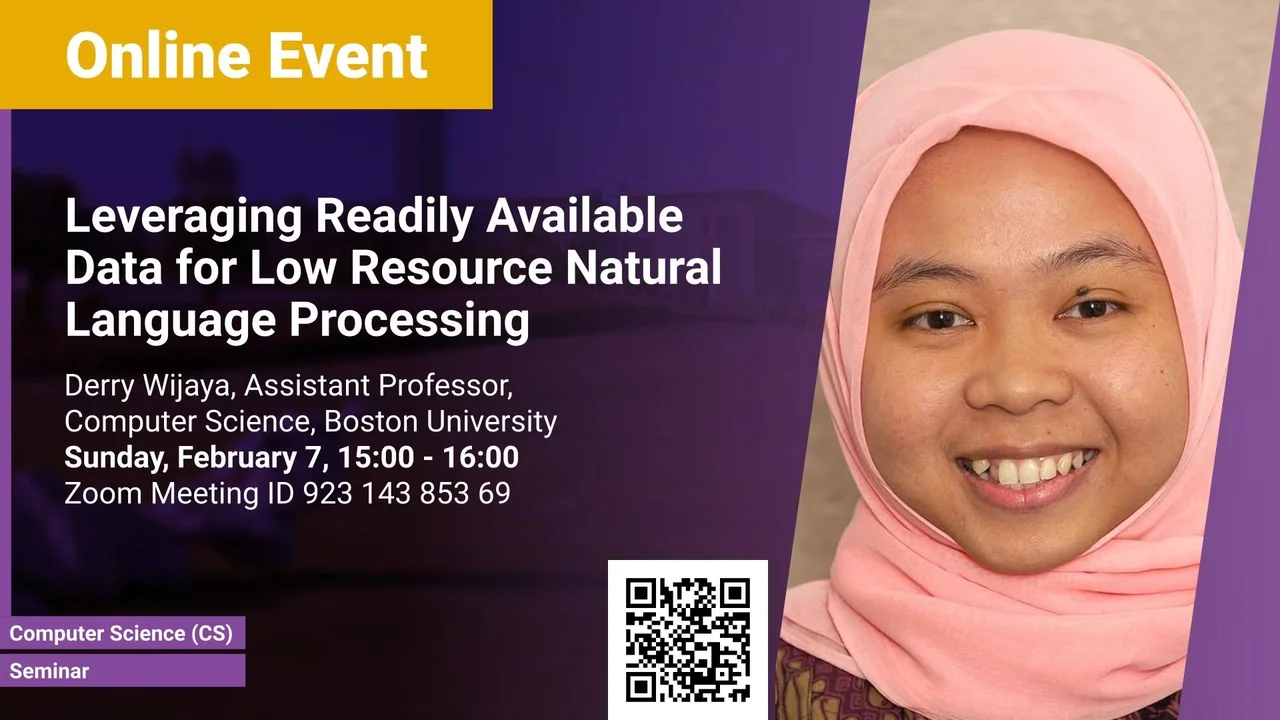
Leveraging Readily Available Data for Low Resource Natural Language Processing
- Derry Wijaya, Assistant Professor, Computer Science, Boston University
KAUST
State-of-the-art Natural Language Processing (NLP) systems nowadays are dominated by machine learning and deep learning models. However, most of these models often only work well when there are abundant labeled data for training. Furthermore, as these models typically have a large number of parameters, they require large compute resources to train. For the majority of languages in the world and the researchers working on these languages, however, abundant labeled data are a privilege and so do compute resources. How can we train generalizable NLP models that are effective even when labeled data are scarce and compute resources are limited? In this talk, I will present some of our solutions that leverage unsupervised or few-shot learning and readily available multilingual resources or multimodal data to improve machine translation and nuanced text classification such as news framing under these low resource settings.
Overview
Abstract
State-of-the-art Natural Language Processing (NLP) systems nowadays are dominated by machine learning and deep learning models. However, most of these models often only work well when there are abundant labeled data for training. Furthermore, as these models typically have a large number of parameters, they require large compute resources to train. For the majority of languages in the world and the researchers working on these languages, however, abundant labeled data are a privilege and so do compute resources. How can we train generalizable NLP models that are effective even when labeled data are scarce and compute resources are limited? In this talk, I will present some of our solutions that leverage unsupervised or few-shot learning and readily available multilingual resources or multimodal data to improve machine translation and nuanced text classification such as news framing under these low resource settings.
Brief Biography
Derry Wijaya is an Assistant Professor in the Computer Science Department of Boston University. Her research focuses on extending the state-of-the-art machine learning and deep learning algorithms to problems that involve natural language data for low resource languages, which are languages for which there are few/no training data available, or no existing automated human language technologies. She is interested in building generalizable approaches for these low resource languages that leverage their monolingual data and other sources of information such as images or readily available multilingual resources. Before joining Boston University, she did her postdoctoral research at the University of Pennsylvania with Professor Chris Callison-Burch on translating words from monolingual only corpora. She received her Ph.D. from Carnegie Mellon University working with Professor Tom Mitchell in building and populating knowledge bases by extracting information from unstructured web text on the Never-Ending Language Learning (NELL) project. She received her Master's and Bachelor of Computing degrees from the National University of Singapore.